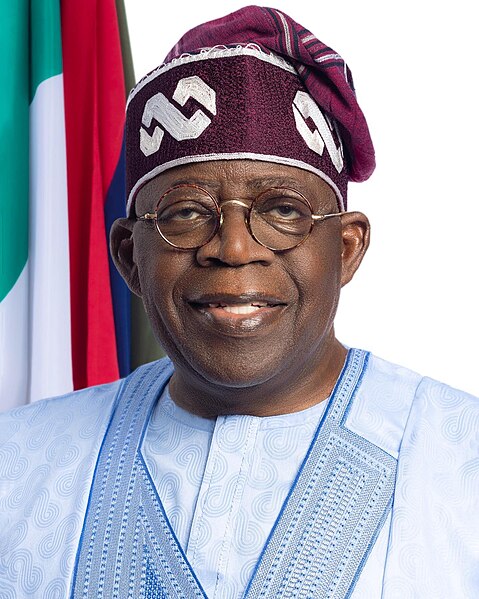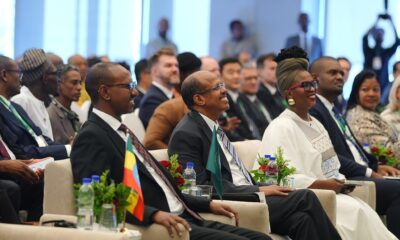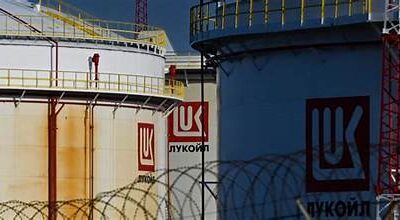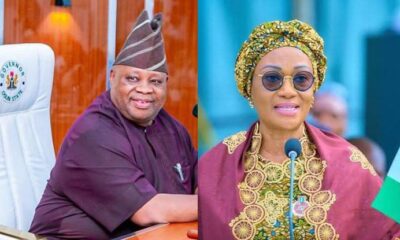National Issues
A Country Of Cooked Credentials -By Ike Willie-Nwobu
It is predicted that the Supreme Court would find some soft grounds to conveniently bat away the issue of forgery, which should yield disqualification for the president and his subsequent vacation from office. But what will be left? What will remain?

A journey that started last year, wound through a contested election, a beleaguered judiciary and a saga involving a foreign university has culminated in a presidential candidate during the last election asking the president to resign.
It would be unprecedented for a president to resign in Nigeria but so too is a president all but forging a certificate as he sought to occupy Nigeria’s first office.
Nigerian law is clear that presenting a forged certificate while seeking political office is a ground for disqualification. It is that simple. Until it is not in Nigeria.
Many Nigerians associate corruption in Nigeria with money and monetary gains. For many Nigerians until money is exchanged for a favour or an advantage, there is no corruption.
If financial corruption has become one of Nigeria’s most pressing national problems of the last two decades, it has had an even far more devastating effect – the corrosion of moral values and the cremation of national ethics.
In the fierce and furious race to pick up money, no matter how it comes to beat off the nightmarish problems that multifaceted poverty presents in Nigeria’s diverse but dysfunctional society, the values of honesty, integrity, and uprightness are left in the dust.
Earlier this year, one Miss Mmesoma who sat for the UTME conducted by the Joint Admissions and Matriculation Board, forged her result, paraded herself as the best student and successfully fleeced well-meaning Nigerians until JAMB fought back, many Nigerians winced in embarrassment at the return of a problem that has dogged the country for years, laying waste any claims of credibility.
To get by in a country where survival is very much for the crooked, many Nigerians forge credentials. Identity cards, birth certificates, death certificates, school certificates, and every other kind of document that can confer advantage of any kind.
In a country where standards have slipped so badly that the kind of scorching scrutiny that keeps crooks and criminals on their toes has all but gone out the window, it is not surprising that nothing is really as it seems.
Nigerian politicians have especially mastered the art of forgery. In a country where money wields the unnerving ability to buy almost anything, pearls have been routinely sold to swine in the bid to acquire political power.
There have been sensational cases involving politicians forging documents in the past, like the deputy Governorship candidate in Bayelsa who was exposed as a forger and cost his party prized victory in the election.
There have been those who have come out to say that forging certificates is not a Nigerian thing. However, among many Nigerians is the painful awareness that those who have been caught with forged certificates are only droplets in the deluge of those parading forged certificates.
This has resulted in a catastrophic credibility crisis. Because detection is weak and prosecution is even weaker, this trail of forgeries usually slips unnoticed, seeding into different aspects of Nigerian life those for whom integrity is a calamitous inconvenience.
Today, there are valid questions in Nigeria about what is real and what is fake. A country with a history of trust issues is at an all-time low on that front with public trust hitting practically zero.
Nigerians have always nursed a long-seated distrust of their institutions, and those who man them.
In February, the Independent National Electoral Commission (INEC) conducted keenly awaited general elections.
Even before a winner was announced in the dead of night on March 1, palpable distrust was sweeping through the country.
The judiciary has since given its judgment confirming the winner of the election. While there is one more rung to be climbed on the judicial ladder before finality can be put to the decision, Nigerians don’t trust the judiciary.
A long-running damage can only be exacerbated by the presence in Nigeria’s highest office of a man accused of forging a diploma he submitted to INEC as he sought public office.
As a result of events that have caused Nigeria serious reputational damage internationally, it has all but been proven that Nigeria’s commander-in- chief forged a diploma result from the Chicago State University.
What more could go wrong? What could be possibly worse than that?
It is predicted that the Supreme Court would find some soft grounds to conveniently bat away the issue of forgery, which should yield disqualification for the president and his subsequent vacation from office. But what will be left? What will remain?
It is not hard to imagine that if that happens, a country that has proven itself incredibly resilient will become like a husk, emptied of everything of value.
More damaging it will become a country where anything goes, and crooks cook credentials at will.
Ike Willie-Nwobu,
Ikewilly9@gmail.com










